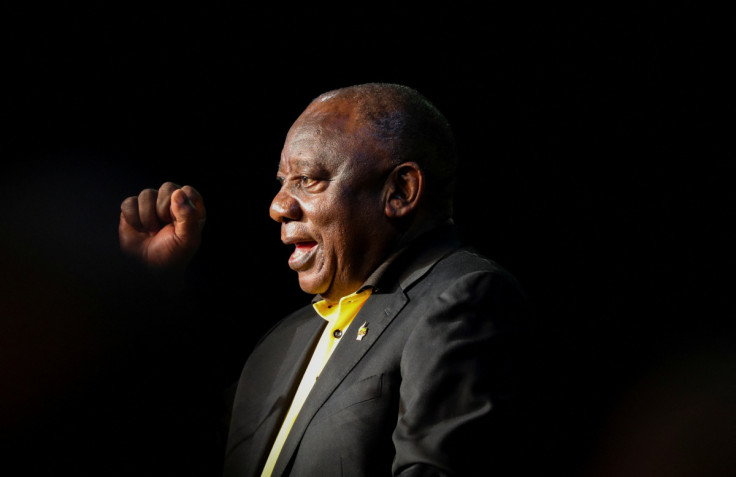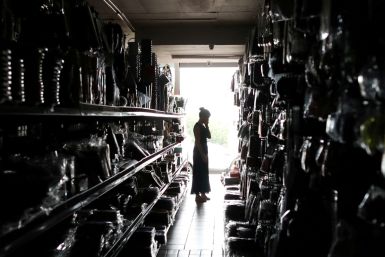South Africa's Ramaphosa Eyes 2024 Election With Call To Revamp ANC

South African President Cyril Ramaphosa urged his ruling African National Congress (ANC) on Tuesday to improve on the poor delivery of basic services that led to its worst election result in living memory, a day after it re-elected him as its leader.
South Africans, especially those in poor townships and rural areas, complain about a lack of municipal water, unrepaired roads, raw sewerage spilling into rivers and chronically underfunded schools.
Ramaphosa's re-election, despite a scandal dubbed "Farmgate" by the media over cash hidden on the president's private farm, paves the way for him to run for a second term. Ramaphosa has denied any wrongdoing.
He now faces the task of rebuilding support for the corruption-tainted ANC amid crippling power cuts that have hurt business and exacerbated rampant unemployment.
In municipal polls in 2021, the ANC won less than half the vote for the first time since taking power at the end of white minority rule in 1994, largely driven by anger over poor service delivery.
"We realise more clearly that the failure of basic services in parts of the country has decreased the confidence that our people have (in the ANC)," Ramaphosa said in the concluding remarks of the ANC's elective conference.
"We must pay attention to service delivery."
Analysts still see Ramaphosa as the candidate most able to revive the party's popularity in Africa's most industrialised nation, which holds a general election in 2024.
As the president entered the auditorium, the crowd cheered and sang "Ramaphosa, we all love him, we are with him, always."
His remarks came after the party began voting for leaders to its highest decision-making body with the power to remove party presidents, the results of which were still being counted and would be released later.
Ramaphosa must still cement control of the party by garnering a majority in the 80-member National Executive Council (NEC), whose election takes place every five years, as it could still cause him trouble if it houses many of his political enemies.
He defeated former health minister Zweli Mkhize in a two-horse race on Monday and his allies won many of the party's "Top 7" seats, strengthening his hand after having shared the spoils with a rival faction in the previous vote in 2017.
The cash scandal, however, remains a cloud over Ramaphosa, who has challenged in court an investigation report that said he might have committed misconduct. He has not been charged with any crime, but some opponents had called for his resignation.
It had raised questions about how the president, who came to power on a promise to fight graft, had acquired the money and whether he had declared it.
Several probes, including by the police, the South African Reserve Bank and the Directorate for Priority Crime Investigation, are still on.
Should any of the investigations find evidence against Ramaphosa, he could face the risk of being removed from the presidency by the all-powerful NEC.
"Since the NEC has the power to recall an ANC president, Ramaphosa will need to ensure that his allies win a majority of seats in the body to stave off the threat of removal," Eurasia Group said in a note.
© Copyright Thomson Reuters 2025. All rights reserved.
















